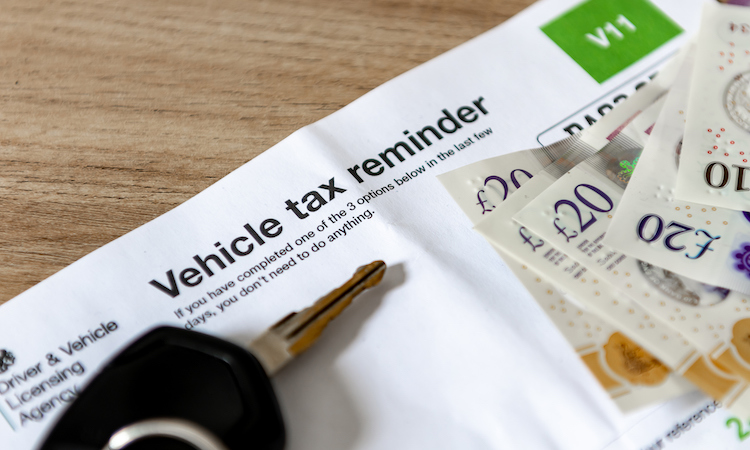Warning: Fraudsters are using our brand to target individuals. Loans 2 Go will never ask for upfront fees. If affected, please contact us & learn more here.
We use cookies to improve your experience on our websites and to analyse how and when our sites are used. By clicking 'Accept all & continue' you're agreeing to our use of cookies. To learn more about the cookies we use, you can read our cookie policy.
Opt out of non-essential cookiesWarning: Fraudsters are using our brand to target individuals. Loans 2 Go will never ask for upfront fees. If affected, please contact us & learn more here.

It’s a tradition of many news channels, social media pages and newspapers to publish spoof stories on 1st April. And so much of the news is so bizarre at the moment that they can be difficult to spot!
But one major piece of news from early April this year was that bills are going up. Again. And unfortunately this wasn’t a spoof. In this article we look at five bills that went up in April, and for each one we explore ways that you might be able to save money and keep them down.
One of the major bill increases this April was Council Tax. Most councils increased bills by 4.99%, which on average, is an increase of around £103 per year. However, in some areas it was higher than this, such as Birmingham – where Council Tax has gone up by 10%.
Council Tax has to be paid by everyone aged 18 or over who either owns or rents a home. The amount of Council Tax you pay also depends very much on the type of property you live in. There are several Council Tax bands from A, the cheapest, to H, the most expensive.
The good news is that there are also various circumstances in which you may be able to get a discount on your Council Tax. These include if you are:
Also, if you are having difficulty paying your Council Tax, it’s important to contact your local council who may be able to arrange a reduced or delayed payment for you.
For more information about Council Tax, check out our recent article Council Tax : make sure you are not paying too much.
Water bills also increased in April by 6.2%, which works out at an average increase of £28 per year. The actual amount depends on your supplier, which is determined by where you live.
Some of this increase is to cover the cost of sewage removal. But your bill is also influenced by the amount of water you and your family use.
Let’s take a look at how to save money on your water bill.
Unfortunately you can’t choose to change your water supplier, as this is fixed depending on where you live. But there are a few simple things that you and your family can do to keep costs down. Some of these are:
It is worth checking with your water company if they offer any social tariff scheme if you either have a low income or receive certain benefits. And if you have a water meter and are on certain benefits you may be eligible for the WaterSure scheme, which will cap your bill at a lower amount. You can find out more about the WaterSure scheme from Citizens Advice here.
If you have a phone or broadband contract, you would expect to pay the same amount each month until that contract ends. Unfortunately, current rules allow phone and broadband providers to implement mid-contract price rises. And most providers have recently introduced increases of up to 8.8%, which works out at around £28 per year.
It’s likely that mid-contract price rises will be banned by regulators later in the year. But what can you do now if your charges have gone up?
If your contract is coming to an end, or if you are already out of contract, you are in a stronger position to be able to save money. If you’re not sure whether or not you are still in contract, you can text “info” to 85075 to find this out.
If you are out of contract and want a better deal, the first thing to do is to contact your current provider to see what they can do for you. Many providers will be willing to work with you to find a cheaper way forward for you rather than lose you as a customer.
If you still think you could be paying less, try checking out other potential providers. Websites such as Compare the Market, USwitch or Money Supermarket can help with this.
In April the TV licence went up for the first time in two years. It’s a 6% rise from £159 to £169.50.
You have to have a TV licence if you watch or record anything on live TV, or watch anything on BBC iPlayer. Don’t try and get away without one : you could end up with a £1000 fine. The only circumstance where you don’t need a TV licence is if you only watch on-demand movies or TV shows via the Internet, for example Netflix or YouTube.
The TV licence is a fixed cost for most households. However, if you are aged over 75 and either you or your partner receive Pension Credit you may be eligible for a free licence.
There are also some circumstances where you can get a discounted TV licence. These are:
Also be aware that if you currently pay your TV licence in full once a year, you can change to pay this by monthly or quarterly direct debit to spread the cost.
Vehicle tax also went up in April. You need to pay an initial tax when the vehicle is first registered, which covers it for 12 months. The amount of this tax depends on your vehicle’s CO2 emissions. You can check the rate for different types of cars on the Gov UK website.
After the first 12 months, you then pay vehicle tax every year, and the rate depends on the type of car you drive. From April 2024, the vehicle tax for most petrol and diesel cars is £190 per year. If you have any kind of hybrid car there is a £10 discount, so the cost is £180 per year. Both these figures are an increase of £10 from before April.
Unfortunately there is not a great deal you can do to save money on vehicle tax. At the moment, electric vehicles are exempt from vehicle tax, but this will change from 2025. New electric cars will then be subject to a one-off first year charge – currently £10 – then from the second year onwards will be charged at the same rate as petrol and diesel cars.
Vehicle tax is just one of the many expenses of running a car, so a longer term option may be to see if you are able to manage without a car, and just use a hire car when you do need one. Peer to peer car hiring and sharing schemes, such as Zipcar and Hiyacar, enable you to find available cars near you and hire them by the hour or day for either a round trip or one way journey. So if you don’t use your car that often, it could make more financial sense to do this rather than have the monthly outgoings of keeping a car.
We hope that this article has helped you understand which bills have recently risen, and also given you some good ideas as to ways you can save money on them.
If you need a bit of extra money during the process – for example to pay off one provider so that you can then move to a cheaper one – it could be worth looking at personal loans. This could enable you to clear the decks with your old provider and make a fresh start – at better value – with your new one.
Do check back here soon for more financial tips from Loans 2 Go.











Loans 2 Go is a trading name of Loans 2 Go Limited, registered in England and Wales. Company number 4519020. ICO registration number Z720743X. Registered address: Bridge Studios, 34a Deodar Road, London SW15 2NN. Authorised and regulated by the Financial Conduct Authority (FRN 679836). *Payment by bank transfer once application approved, subject to our working hours of Monday to Friday: 8am to 8pm and Saturday 8am to 5pm. All loans are subject to eligibility & affordability criteria. Max APR 815.6%.
As a lender, we pay commissions to credit brokers or other intermediaries who introduce customers to us. The commission we pay varies depending on the broker, the product offered, and the terms agreed with the broker. This payment is made by us and does not affect the interest rate, terms, or total cost of your loan.
© 2024 Loans 2 Go. All rights reserved.